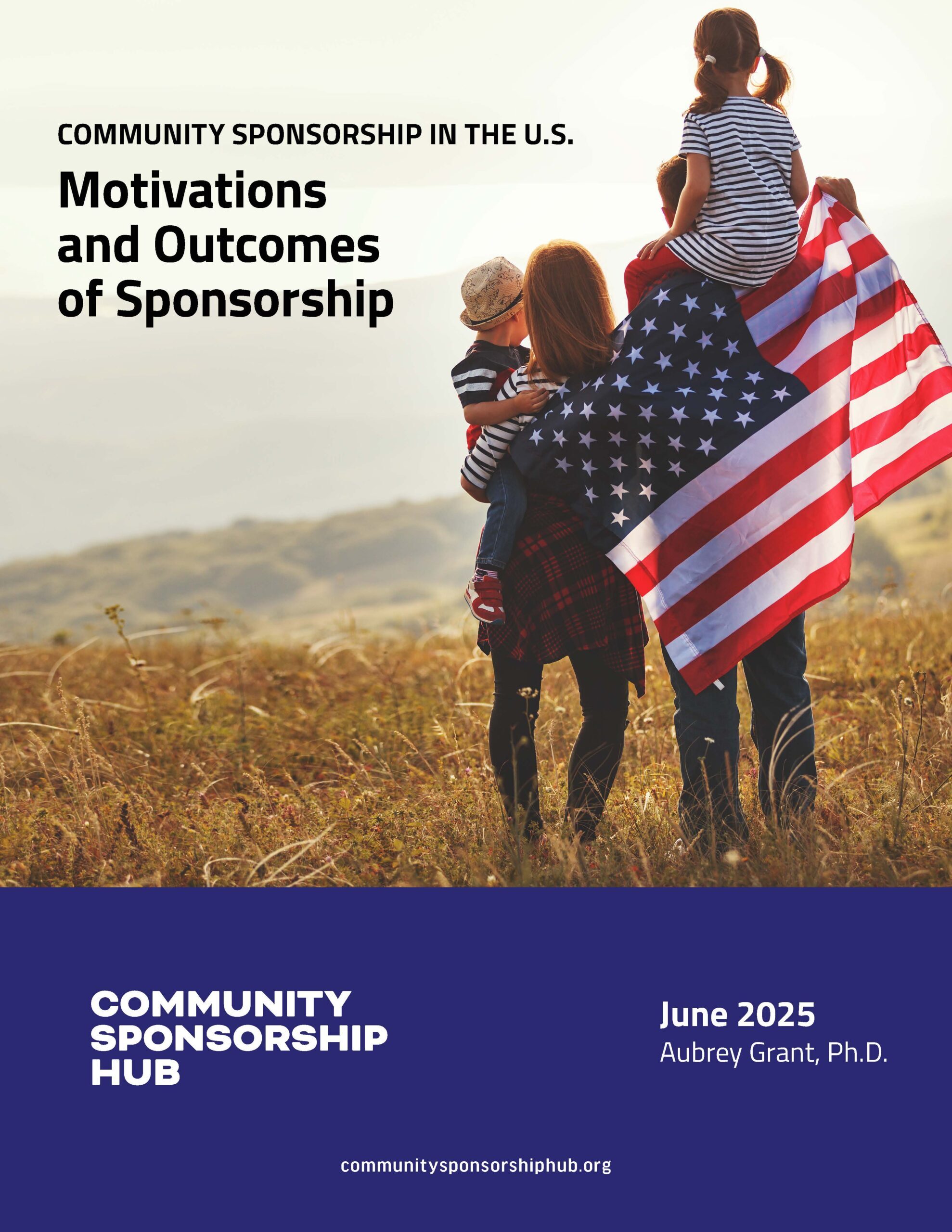Community Sponsorship in the U.S.: Motivations and Outcomes of Sponsorship
As global displacement reaches historic highs, the United States has increasingly turned to community and private sponsorship to offer flexible, localized support for refugee resettlement. This report analyzes survey data collected between April and June 2025 from over 1,000 individuals who participated in the Sponsor Circle Program (SCP) and Welcome Corps between. Findings indicate that Americans across geographies and political affiliations are eager to support newcomers, with participation driven primarily by personal values, civic duty, and moral responsibility.
Key Findings:
1. Sponsor Participation Is Values-Driven: Sponsors cited strong ethical motivations for engagement, including belief in humanitarian values (30%), concern for the safety of family or friends (29%), faith-based commitments (18%), and the opportunity to support their communities (14%). This aligns with international research showing that sponsorship is rooted in moral obligation, empathy, and shared identity rather than material incentives.
2. Sponsorship Enables Rapid, Localized Response:Community sponsorship has mobilized a distributed network of support across all 50 states and D.C., reaching urban (47%), suburban (38%), and rural (14%) communities. Sponsor groups raised over $210 million in private funds, showcasing significant local investment in refugee reception and integration.
3. Integration Outcomes Are Relational and Reciprocal: Sponsors overwhelmingly report that refugees are integrating well into their communities. Nearly 90% of sponsors formed personal relationships with those they supported, and 73% reported a stronger connection to their local communities. Sponsorship also deepened ties with faith communities, civic groups, and immigrant networks.
Implications for Policy and Practice: Community sponsorship has emerged as an effective and adaptive model for refugee resettlement. It promotes deeper integration, fosters meaningful relationships, and strengthens social cohesion by empowering communities to lead resettlement efforts. As the U.S. reimagines its resettlement infrastructure, these findings underscore the importance of models that promote civic participation, decentralize support systems, and enhance local capacity. Far from being a temporary or supplemental measure, sponsorship is a transformative practice – one that not only facilitates refugee welcome but also revitalizes communities and reinforces the nation’s humanitarian commitments.
